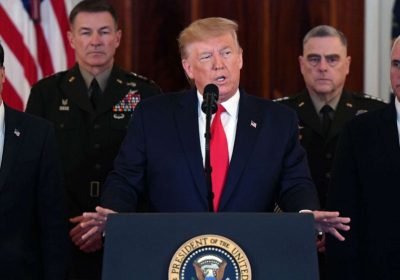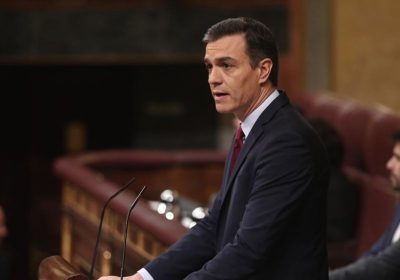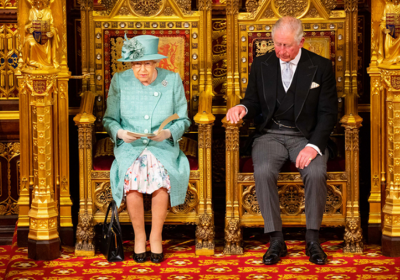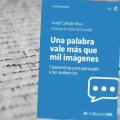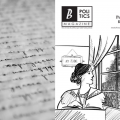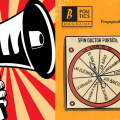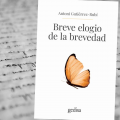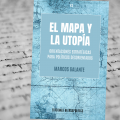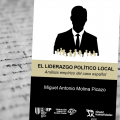Thank you very much Mr Randall. Tomorrow, with a simple yet eloquent pledge, about 14,000 people from more than 70 countries of origin will become Australian citizens. This Australia Day celebration of citizenship embodies a profound truth and a simple irony.
The truth is that people come to this country because they want to be Australians. The irony is that no institution or code lays down a test of Australianness. Such is the nature of our free society.
It would however be a crushing mistake to downplay the hopes and the expectations of our national family. We expect all who come here to make an overriding commitment to Australia, its laws and its democratic values. We expect them to master the common language of English and we will help them to do so.
We want them to learn about our history and heritage. And we expect each unique individual who joins our national journey to enrich it with their loyalty and their patriotism.
Australia is a magnet for people from all corners of the globe not because of what it might become, but because of what it has become. It harvests the hopes and dreams of mankind because of the quality of life it offers the ordinary citizen – lives of opportunity and belonging; of growth and of balance.
This achievement is higher, rarer and more precious than we commonly suppose.
Not so long ago, the Economist Intelligence Unit released a ranking of life in major cities around the world. It found that of the 12 most liveable cities on earth, five of them are here in Australia.
Of the top dozen, almost half in one country, this country with only a third of one per cent of the world’s population. This remarkable achievement went largely unnoticed in our public debate. Yet it evokes what, to my mind, is the secret of Australia’s greatness – our sense of balance.
Today I want to locate this nation’s sense of balance at the centre of the modern Australian achievement and to explore its character. The balance in our economic life between the public and the private, the balance in our national identity between unity and diversity, the balance between history and geography in our global strategy, and the balance in our politics between rights and democratic responsibility.
Balance is as crucial to a well-ordered society as it is to a full human life. It should not be mistaken for taking the middle road or splitting the difference. Nor does it imply a state that is static or a nation at rest.
Quite the opposite. A sense of balance is the handmaiden of national growth and renewal. It helps us to respond creatively to an uncertain world with a sense of proportion.
Keeping our balance means we reform and evolve so as to remain a prosperous, secure and united nation. It also means we retain those cherished values, beliefs and customs that have served us so well in the past.
The great struggle of Australia’s first century of nationhood was to reconcile a market economy with a fair and decent society. At the start of the 21st century, we have found a healthier balance in our political economy between public and private – one in keeping with the times and the contemporary character of the Australian people.
We encourage individual achievement and self-reliance without sacrificing the common good. We value our independence and chafe against bureaucracies that deny us choice and the capacity to shape our daily lives. Yet we are determined not to let go of the Australian ethos of a fair go for all.
The permanent challenge for Australia is to avoid the extremes of big, overbearing government on the one hand and laissez-faire indifference on the other.
There is much in American society which I admire, but I have long held the view that the absence of an effective safety net in that country means that too many needy citizens fall by the wayside. That is not the path that Australia will tread. Nor do we want the burdens of nanny state paternalism that now weigh down many economies in Europe.
After more than two decades of reform, our economic performance is better than in the past and better than in most comparable countries. Fifteen years ago, Australia’s income per capita had fallen to 19th in the developed world. Today it’s recovered to be about the 8th highest. Total household disposable income has grown in real terms by more than a third over the last decade. Over the same period, real private sector wealth per capita has more than doubled.
Broader measures of our national well-being are even more striking. Australia is now 3rd out of 177 countries on the United Nations’ Human Development Index which takes account of achievement in education enrolment, adult literacy levels, per capita GDP and life expectancy. And it’s not just statistics that tell the story of Australia’s economic renaissance. A report released last year on Australian Social Attitudes found that Australians are much more confident in the economy than they were a decade ago. Eighty per cent of people surveyed said that they were now proud of Australia’s economic achievements.
Strong economic management has given Australia a government–generically speaking, in comparative terms which is lean but not mean. As a share of GDP, and this is a statistic worth repeating and emphasising in the context of current debate about the balance of revenue and expenditure. As a share of GDP, this country now has the second lowest level of general government outlays in the OECD, at 36 per cent; slightly lower even than in the United States and Japan and significantly lower than the average in Europe.
The elimination of net government debt by this Government compares with average government debt across the OECD of approximately 50 per cent of GDP. Yet the real genius and achievement of modern Australia is an ability to clear new hurdles of reform without leaving behind the most vulnerable members in our society.
Work done at the OECD has shown that the distribution of social benefits in Australia is so progressive – and the level of taxes paid by the poor is so low – that this nation redistributes more to the poorest 20 per cent of the population than virtually any other developed country.
This Government has reinforced Australia’s safety net, but we also believe in the principle of mutual obligation. By this I mean not only that individuals ought to do something in return for the support they receive from society, but also that in order for society and the government to help people in need, they need to be willing to do something to help themselves. Far from undermining social protection, policies that promote responsible behaviour and self-reliance are essential pillars of a compassionate Australia.
We strike the right balance between state support and personal responsibility in the provision of human services. Our health and education institutions are far from perfect. But by global standards their quality is high and they are well-resourced. In the years ahead, we must continue with reforms that make our hospitals and schools respond to the needs of individuals and not those of bureaucracies.
The great test of our policy balance in coming decades will be our ability to reconcile inexorable demographic change with demands of Australians for even greater choice in education, health, family support and work opportunities.
This will only be done by staying the course with reforms to the way we work and to our welfare arrangements. The first of the baby boomers are now turning 60. This milestone roughly coincides with the beginning of an expected decline in Australia’s labour force participation rate over coming decades.
Today, there are roughly five working age Australians for every Australian over 65. In two generations that figure will have fallen to about 2.5. To sustain our prosperity in the face of this trend we must ensure that young Australians have skills for a lifetime. And we must reward them when they work.
The social attitudes report that I mentioned a moment ago also had something to say about what ordinary Australians think of the Australian Achievement. It found that, compared with a decade ago, fewer Australians are ashamed of this nation’s past. I welcome this corrective in our national sense of self. It restores a better balance between pride in our past and recognition of past wrongs.
Australians have not lost sight of the mistakes and injustices of our past, especially in the treatment of Aboriginal and Torres Strait Islander peoples as the first Australians.
We know there is further to go on the road to Reconciliation with indigenous Australia. As I’ve said before, as a Government we are willing to meet the Indigenous people more than half way on this road.
By sharing responsibility, governments and communities can help indigenous Australians build better lives, free from welfare dependency and based on solid economic foundations. If sometimes slow, progress is being made based on indigenous and non-indigenous Australians working side-by-side. With the 40th anniversary of the historic 1967 referendum approaching next year, our aim should be to deepen this legacy.
At the Centenary of Federation five years ago, I said that Australia’s crowning achievement, borne of its egalitarian tradition, was its social cohesion. I still believe that. No country has absorbed as many people from as many nations and as many cultures as Australia and done it so well. The strength of a culturally diverse community, united by an overriding and unifying commitment to Australia, is one of our greatest achievements and one of our great national assets.
Some have questioned my optimism, especially in the wake of the violence in Sydney earlier this summer. These events brought shame on all involved. Australians, whatever their background, deserve to be treated with tolerance and with respect.
Racial intolerance is incompatible with the kind of society we are and want to be. Within limits, all Australians have the right to express their culture and beliefs and to participate freely in our national life. And all Australians have a civic responsibility to support the basic structures and values of Australian society which guarantee us our freedom and equality. The criminal behaviour of last December should be met with the full force of the law. And I do not believe it calls for either national self-flagellation or moral panic.
Our response should reflect this nation’s unswerving commitment to racial equality, that coupled with an absolute determination to ensure that all sections of the Australian community are fully integrated into the mainstream of our national life. And that involves a willingness on the part of the collective Australian nation to achieve that and an acceptance by all sections of the Australian community that that outcome should be achieved.
On these bedrock principles rest both rights and responsibilities that apply to all Australians.
In the 21st century, maintaining our social cohesion will remain the highest test of the Australian achievement. It demands the best Australian ideals of tolerance and decency, as well as the best Australian traditions of realism and of balance.
Australia’s ethnic diversity is one of the enduring strengths of our nation. Yet our celebration of diversity must not be at the expense of the common values that bind us together as one people – respect for the freedom and dignity of the individual, a commitment to the rule of law, the equality of men and women and a spirit of egalitarianism that embraces tolerance, fair play and compassion for those in need. Nor should it be at the expense of ongoing pride in what are commonly regarded as the values, traditions and accomplishments of the old Australia. A sense of shared values is our social cement. Without it we risk becoming a society governed by coercion rather than consent. That is not an Australia any of us would want to live in.
Again, our goal must be to strive for a balance in questions of national identity and cultural diversity. And for the most part I think we achieve it. We’ve drawn back from being too obsessed with diversity to a point where Australians are now better able to appreciate the enduring values of the national character that we proudly celebrate and preserve. We’ve moved on from a time when multiculturalism, in the words of the historian Gregory Melleuish, came to be associated with ‘the transformation of Australia from a bad old Australia that was xenophobic, racist and monocultural to a good new Australia that is culturally diverse, tolerant and exciting’. Such a view was always a distortion and a caricature.
Most nations experience some level of cultural diversity while also having a dominant cultural pattern running through them. In Australia’s case, that dominant pattern comprises Judeo-Christian ethics, the progressive spirit of the Enlightenment and the institutions and values of British political culture. Its democratic and egalitarian temper also bears the imprint of distinct Irish and non-conformist traditions.
Of course, each wave of new settlers to Australia influences our culture and character, helping to forge new attitudes and traditions. From our art and literature to our scholarship and diplomacy, greater cultural diversity has changed how we see ourselves and how we view the world. It has contributed to our more enterprising and entrepreneurial society. We should have faith in what we have achieved and what we have become.
Quite apart from a strong focus on Australian values, I believe the time has also come for root and branch renewal of the teaching of Australian history in our schools, both in terms of the numbers learning and the way it is taught. For many years, it’s been the case that fewer than one-in-four senior secondary students in Australia take a history subject. And only a fraction of this study relates to Australian history. Real concerns also surround the teaching of Australian history in lower secondary and primary schools. Too often history has fallen victim in an ever more crowded curriculum to subjects deemed more ‘relevant’ to today. Too often, it is taught without any sense of structured narrative, replaced by a fragmented stew of ‘themes’ and ‘issues’. And too often, history, along with other subjects in the humanities, has succumbed to a postmodern culture of relativism where any objective record of achievement is questioned or repudiated.
Part of preparing young Australians to be informed and active citizens is to teach them the central currents of our nation’s development. The subject matter should include indigenous history as part of the whole national inheritance. It should also cover the great and enduring heritage of Western civilisation, those nations that became the major tributaries of European settlement and in turn a sense of the original ways in which Australians from diverse backgrounds have created our own distinct history. It is impossible, for example, to understand the history of this country without an understanding of the evolution of parliamentary democracy or the ideas that galvanised the Enlightenment.
In the end, young people are at risk of being disinherited from their community if that community lacks the courage and confidence to teach its history. This applies as much to the children of seventh generation Australians or indigenous children as it does to those of recent migrants, young Australian Muslims, or any other category one might want to mention. When it comes to being an Australian there is no hierarchy of descent. Whether our ancestors were here thousands of years ago, whether they came on the First Fleet or in the 19th century, or whether we or our ancestors are amongst the millions of Australians who have come to our shores since the Second World War, we are all equally Australians – one no better than the other.
So tomorrow let us indeed celebrate our diversity. But we should also affirm the sentiment that propelled our nation to Federation 105 years ago – one People, One Destiny.
Australia’s standing in the world has never been higher. We are seen as a fair-minded and generous country. We are seen as a country that stands up for what it believes in. We are respected for who we are, for the quality of our ideas and for the unique perspective we bring to our region and to the world. The divisive, phoney debate about national identity and what it means for our influence in the world has been finally laid to rest. Australia is a liberal democracy with global political and economic interests and a proud history of defending freedom against its enemies. We do not have to smother or apologise for our place in the Western political tradition in order to build our relationships in Asia or in any other part of the world.
To grasp what I mean when I say that Australia occupies a unique intersection of history, geography, culture and economic circumstance is quite simple. Simply look at what we do. Last December, Australia was at the centre of the inaugural East Asia Summit in Kuala Lumpur, a symbol not just of our geographic proximity or trade links with Asia but of the values and relationships we bring to regional engagement. Two weeks ago, we convened the first meeting of the Asia Pacific Partnership on Climate Change in Sydney, illustrating our capacity to build regional coalitions and to lead on issues of global significance. In a couple of months time, Melbourne will host the Commonwealth Games – an event that combines our history, our passion for sport and Australia’s unrivalled capacity to stage major events in a friendly and sophisticated environment. In August, the Trade Minister will host a meeting of the Cairns Group, marking two decades of Australia’s crusade to free up world agricultural trade. And in November, Finance Ministers and Central Bank Governors of the Group of 20 nations will gather in Australia as the Treasurer leads efforts to update and strengthen the world’s financial architecture.
The Government’s commitment to capture and harness the opportunities of globalisation for the betterment of all our people is a major driver of our international strategy. In the 21st century, for the first time in history, we are witnessing the emergence of a global middle class. Of all the deep trends in global politics, few will match this one. Previously, the vast bulk of the world’s middle class citizens lived in the industrialised countries – in the United States, Canada, Western Europe, Japan and Australia. This is no longer the case. It’s estimated that India and China combined could easily produce middle classes of 400 to 800 million people over the next two generations – roughly the size of the current middle-class populations of the United States, Western Europe and Japan combined. Based on what we know about the relationship between income growth, health standards, political participation and environmental stewardship, the growth of this global middle class represents an enormously positive development for the world and for Australia. It also illuminates the historic nature of the Australian achievement as a global pioneer of good government and human development.
Of course, our world is also fragmented and in conflict. This is the fifth year that we have lived under the shadow of global terrorism and nothing suggests that shadow is lifting any time soon. Terrorism remains the defining element in Australia’s security environment. Australians and Australian interests continue to be a terrorist target, both abroad and at home. This tests our sense of balance no less than our resolve. We know what our enemies think and what they are capable of. They hate our freedoms and our way of life. They despise our democratic values. They have nothing but contempt for a diverse society which practises tolerance and respect. Australia must continue to work with friends and allies in the fight against global terrorism. And in 2006, living with the threat of terrorism also means recognising that national security begins at home.
Our social cohesion and national unity is pivotal in enabling Australia to contribute effectively to the international effort to combat terrorism, and to safeguard Australia domestically. This Government will do what is necessary to protect the Australian community, but we will do it in a way that does not diminish us as a community or as a nation. This means finding the right balance between the legitimate interests of the community on the one hand and individual civil rights on the other. And inevitably this will be a matter for passionate debate.
Some Australians have argued in recent times that the balance has moved too far. They want to shift it in the other direction, principally through a Bill of Rights. I believe this would be a big mistake for our democracy. A Bill of Rights would not materially increase the freedoms of Australian citizens. It will not make us more united, indeed I believe it would lessen our ability to manage and to resolve conflict in a free society. It would also take us further away from the type of civic culture we need to meet the challenges of today and tomorrow. No matter how skilfully crafted, a Bill of Rights always embodies the potential for misinterpretation, unintended consequences or accidental exclusion. History is replete with examples of where grand charters and lyric phrases have failed to protect the basic rights and freedoms of a nation’s citizens.
The strength and vitality of Australian democracy rests on three great institutional pillars: our parliament with its tradition of robust debate; the rule of law upheld by an independent and admirably incorruptible judiciary; and a free and sceptical press of the sort that we politicians simply adore. I’ve called this trilogy in the past the real title deeds of our democracy, a political inheritance that has given us a record of stability and cohesion that is the envy of the world. I have never been persuaded by those who claim that the road to good government is via taking more and more decisions out of the hands of the people’s elected representatives. It my passes my comprehension that people should devote their life and their energy to securing a place in one of the Parliaments of the nation and then spend much of their time suggesting that decisions should be passed by that Parliament to unelected individuals or unelected bodies. In our parliamentary democracy, politicians are elected to make decisions on behalf of the community. They are elected by the people and, ultimately, they are answerable to the people for the decisions they make. To draw these decisions away from the legislature and the executive and to invest them in the hands of the judiciary would irrevocably change our democracy. And it would hamper our ability to respond to changes in a way that reflects the realities we now face.
And incidentally, does anyone seriously contend that we can improve the education of our children, raise our national productivity, or better care for older Australians by further entrenching the language and culture of rights in our public discourse? Together, responsive democratic institutions and an active civil society provide more effective protection for the rights of Australian citizens than any charter of rights could hope to achieve.
Let me again cite the Australian Social Attitudes report on the state of our civil society. Contrary to the pessimism of some commentators, it found that Australians are not losing trust in each other. The voluntary sector – the lifeblood of active Australian citizenship – remains strong and healthy with 86 per cent of respondents belonging to at least one voluntary association. Australians have lost none of their volunteer spirit or the democratic temper for which they are renowned. Our ability to poke fun at those in positions of power is undiminished. We cannot abide pretentiousness in our public officials and we laugh at those who take themselves too seriously.
Warts and all, I believe in our unique democracy because I believe passionately in the virtue of politics. The political philosopher Bernard Crick put it well when he said ‘The moral consensus of a free state is not something mysteriously prior to or above politics: it is the activity (the civilising activity) of politics itself.’ With all its compromises, parochialism and imperfections, this place of mere politics works as the great balancing wheel of our national life.
Australia is one of only a handful of nations to have carried the torch of democracy through a turbulent 20th century. We began that century the first nation ever to come into being following a people’s vote on a democratic constitution. We ended it staging the most successful Olympic Games of all time.
So far in this new century, we’ve made a good start. Our economy is strong. Our society is cohesive. Our nation is respected around the world. Our democracy is robust. If there is a lesson I’ve drawn from the last almost ten years as Prime Minister it is that Australia’s greatness is not found in its Gross Domestic Product, the size of its defence budget or its international standing – important though all of these things are. It is found in the good and decent and generous character of the Australian people. Tomorrow, let us renew our faith in the Australian achievement. We have great cause for optimism, if we keep our balance.
Thank you.


